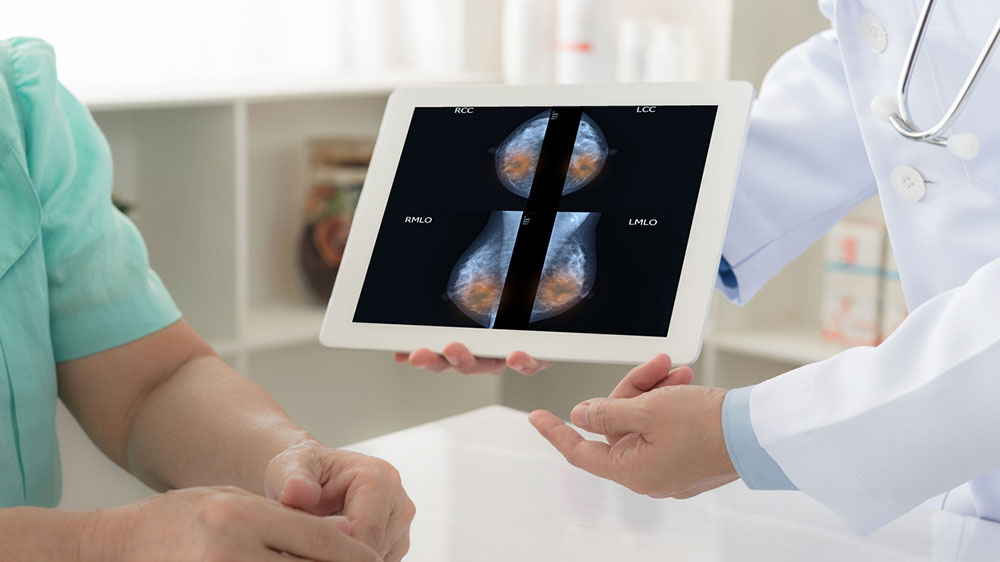
At UZH, new ideas evolve into pioneering technologies of the future. Last year, three groups of business founders with roots at UZH took the entrepreneurial leap and signed a licensing agreement with UZH. Their spin-offs emerged from life sciences research conducted at the Faculty of Medicine and the Faculty of Science.
Precision diagnostics, bespoke therapies
Despite a wide variety of available drugs and treatment options, many people still succumb to cancer. Every tumor is unique, making it difficult to find the ideal treatment for each patient. The spin-off Navignostics develops novel diagnostic methods to perform advanced tumor sample analyses. “We want to help specialists find targeted immuno-oncology therapies that are tailored to the individual cancer patient’s tumor phenotype,” says Bernd Bodenmiller, professor of quantitative biomedicine.
Navignostics leverages spatial single-cell proteomics, an approach that was developed by Bodenmiller and his research group. Their approach involves measuring the many proteins in a tumor sample in high resolution. This enables clinicians to use algorithms to determine the cell types present in the tumor as well as which of the cells’ processes are deregulated and how the tumor cells affect the surrounding cells. The aim is to use these data and artificial intelligence to recommend therapies that are tailored to the individual cancer patient.
Navignostics is currently providing pharmaceutics companies with various services to support them in developing cancer drugs and companion diagnostics or to increase the chances of their clinical trials. Thanks to its successful round of seed financing (CHF 7.5 million), the spin-off can accelerate the development of its first diagnostic product and step up its cooperation with clinical, pharma and biotech partners.

Human tissue from space
The ambitious goal Prometheus Life Technologies AG is to set up a factory that can produce human tissue – in space, no less. The spin-off wants to use the microgravity environment in space to manufacture three-dimensional organ-like tissues – dubbed organoids – using human stem cells. These tissues only grow three-dimensionally in zero gravity. On Earth and in labs, they require highly complicated auxiliary structures to do so. “At the moment, there’s an unmet demand for 3D organoids,” says Oliver Ullrich, director of the UZH Space Hub and co-inventor.
These tissues are particularly popular among pharmaceutical companies, as they enable them to carry out toxicological trials on human tissue without first having to use animal models. Organoids produced from a patient’s stem cells could also one day be used as the building blocks for transplants to treat damaged organs, as the number of donated organs is nowhere near enough to meet the worldwide demand. Further opportunities for growth arise from replacing 2D with the more in-vivo-like 3D cell cultures.
The spin-off’s technology is based on a previous joint project of UZH and Airbus. The research and development phase included comprehensive experiments on the ground as well as two successful production tests aboard the International Space Station (ISS). The whole process, from idea to commercialization, originated, developed and matured in the UZH Space Hub. Prometheus Life Technologies AG already won a high-ranking international award last month. The spin-off was selected as the winner of the Reef Starter Innovation Challenge, an innovation engine powered by Orbital Reef, a mixed-use space station to be built in the Earth’s lower orbit.
Mapping drug activity contexts
Just as statements shouldn’t be considered out of context, the effects of drugs need to be seen in a bigger picture. Founded by Lucas Pelkmans, professor of molecular biology, Apricot Therapeutics specializes in mapping drug activity contexts, or DACs. “We’re the first pharmaceutical company worldwide that focuses on DACs, and our goal is to drive forward the development of novel and innovative drugs,” Pelkmans says. The technology used by the spin-off is based on Pelkmans’ pioneering discovery that it is possible to predict the behavior of individual cells by mapping their surroundings using multi-scale microscopy and imaging technology. DACs capture how the various spatial organizations of our individual cells cause drugs to have variable effects.
Apricot Therapeutics’ technology platform is based on methods in the field of image-based systems biology, for which the spin-off is currently evaluating two patent applications. The goal of the spin-off is to develop a procedure to measure all DACs relevant for drug activity and use machine learning to predict cellular responses to drugs with unprecedented accuracy. The company is the first to apply novel genomics 3.0 technologies to predict drug activity and treatment outcomes. Future clients include pharmaceutical companies, biotech and medtech start-ups, diagnostic centers, clinicians and research laboratories.
Established spin-offs continue to move and shake;
Some 150 spin-offs have been founded at UZH since 1999, many of which achieved great things in the past year.
Here are some of the milestones:
Successful cooperation
- Biotech company Molecular Partners concluded a licensing agreement with Novartis for Ensovibep, a drug against Covid-19. Molecular Partners sold the drug’s worldwide rights to Novartis for a one-time payment of CHF 150 million and a 22 percent royalty on sales.
- Neuroimmune entered into a licensing agreement with AstraZeneca subsidiary Alexion to develop and market the NI006 heart drug. The spin-off also stepped up its cooperation with Japanese company Ono Pharmaceutical in the field of neurodegenerative diseases with the aim of co-developing new drugs.
Medtech firsts
- Clemedi rolled out Tuberculini in 2022. The molecular test for drug-resistant tuberculosis can deliver results within 48 hours.
- CUTISS AG received certification from Swissmedic that allows the UZH spin-off to manufacture personalized human skin transplants in its Schlieren facilities. On-site production increases the company’s flexibility and production capacity. In addition, CUTISS was awarded a tissue graft patent by the European Patent Office.
- Oncobit AG obtained CE marking for its first product, oncobit™ PM. This marking, granted by European regulatory authorities, guarantees that the product can be used without restrictions throughout Europe. oncobit™ PM can be used to monitor treatment response, minimal residual disease, and disease recurrence in melanoma patients.
New capital
- ImmunOs Therapeutics AG completed a highly successful financing round, raising over CHF 72 million. The biopharmaceutical company develops novel therapeutics for the treatment of cancer and autoimmune diseases.
- Schlieren-based Kuros Biosciences AG announced a capital increase of CHF 6 million. The spin-off develops spinal fusion technologies that ease the burden of back pain.
- Invasight AG successfully raised CHF 4.5 million. Founded in 2020, the biotech spin-off develops protein-protein interaction antagonists (PPIAs) against invasive cancers.
- KOVE Medical and OxyPrem were each awarded an EIC Accelerator Grant funded by the State Secretariat for Education, Research and Innovation (SERI) to promote groundbreaking innovations by Swiss start-ups. KOVE is developing a method to make prenatal surgical interventions, while OxyPrem is producing a device to monitor oxygen supply to the brain.